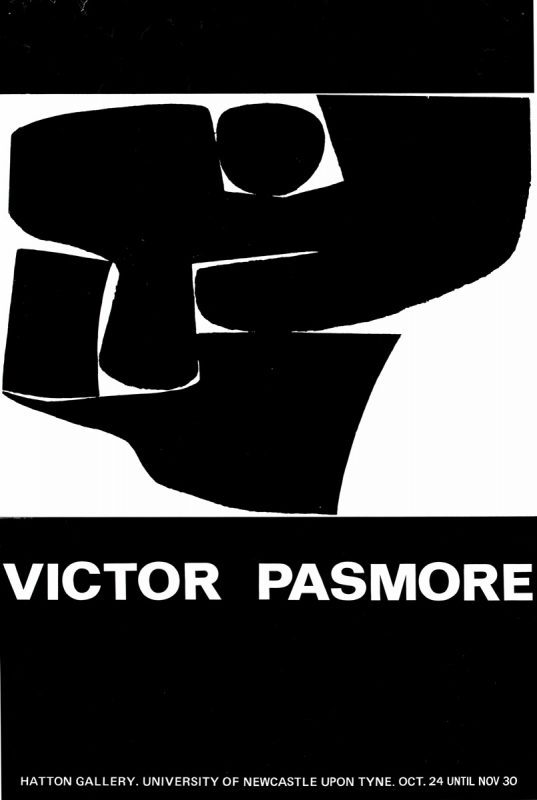1968
With Kenneth Rowntree suceeding Gowing as Professor and following Pasmore’s departure in 1961, this decade saw the increasing influence of Richard Hamilton in teaching, more emphasis on British 20th century acquisitions and younger contemporary artists’ exhibitions.
While Evetts, McCheyne, Holland and Hodgson remained on the staff, others such as Geoffrey Dudley, Eric Dobson, Derwent Wise and later Ian Stephenson took prominent roles.
Exhibitions
-
German and Austrian Posters 1905-15
February 1968German and Austrian Posters 1905-15
-
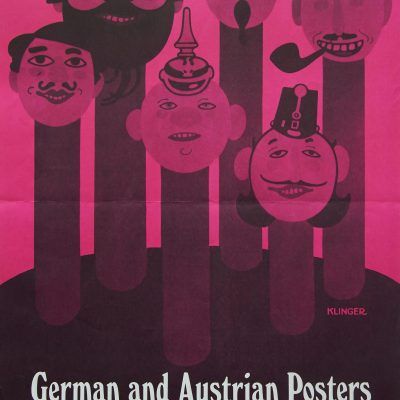
Exhibition poster
-
-
Private View
5 February - 2 March 1968
-
Treasures from Durham Cathedral
4 - 31 May 1968Treasures from Durham Cathedral
-
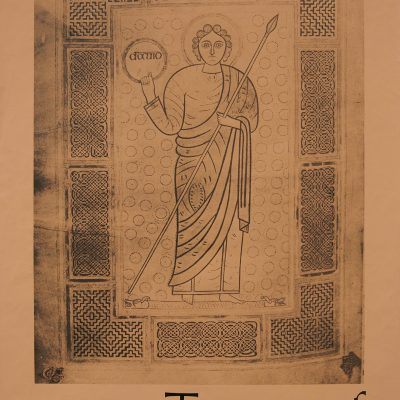
Poster for Treasures of Durham Cathedral
-
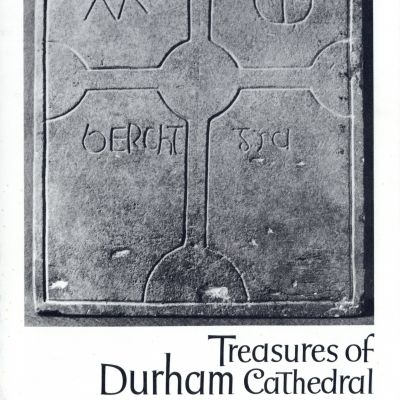
Treasures of Durham Cathedral catalogue
-
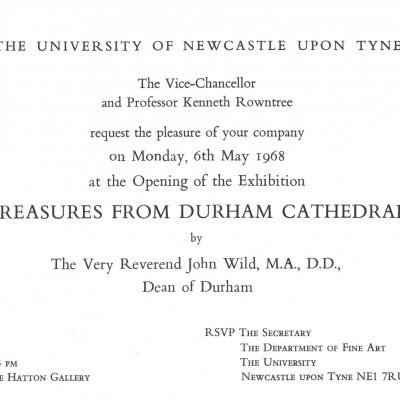
Private View card
-
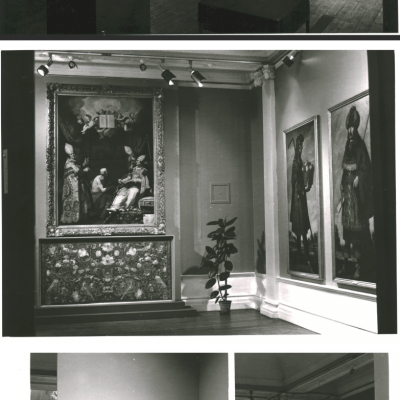
Installation views
-
-
Student Summer Exhibition
26 June - 13 August 1968
-
Josef Albers. 25 Years of Graphic Work
July 1968Josef Albers. 25 Years of Graphic Work
-
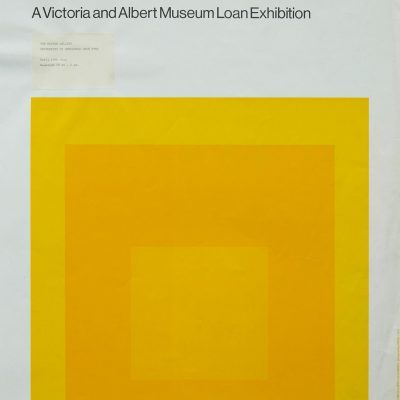
Albers poster
-
-
Modern Sculpture and Sculptors Graphics
28 September - 10 November 1968Modern Sculpture and Sculptors Graphics
-
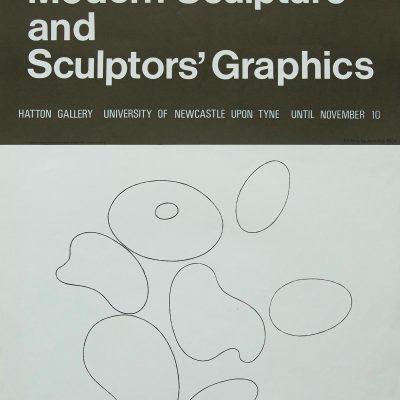
Modern Sculpture and Sculptors Graphics poster
-
-
Victor Pasmore
26 October - 30 November 1968Victor Pasmore
-
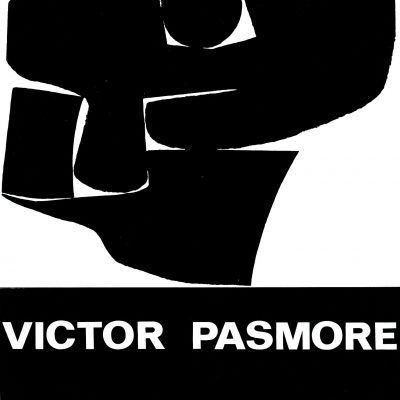
Victor Pasmore poster
-
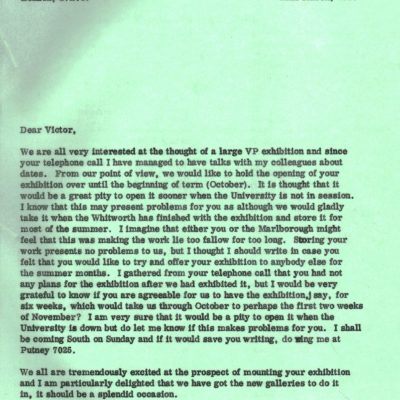
Letter from Rowntree to Pasmore
-
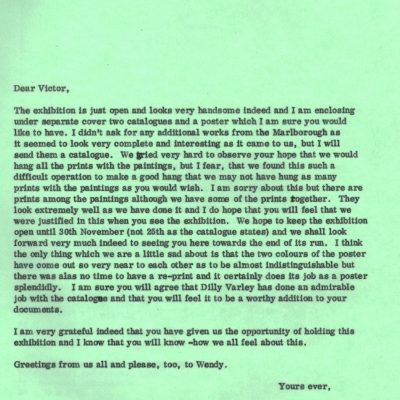
Letter from Rowntree to Pasmore
-
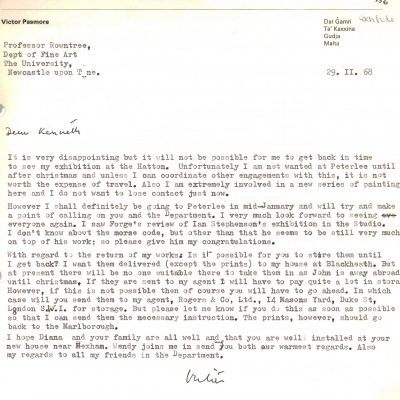
Letter from Pasmore to Rowntree
-
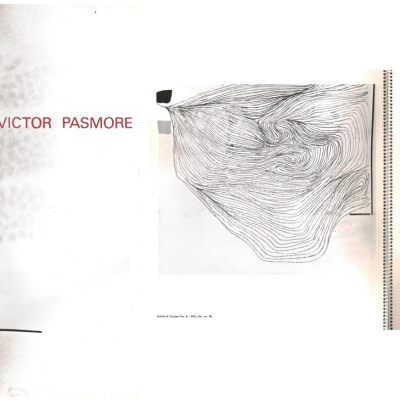
Victor Pasmore catalogue
-
Staff / Students
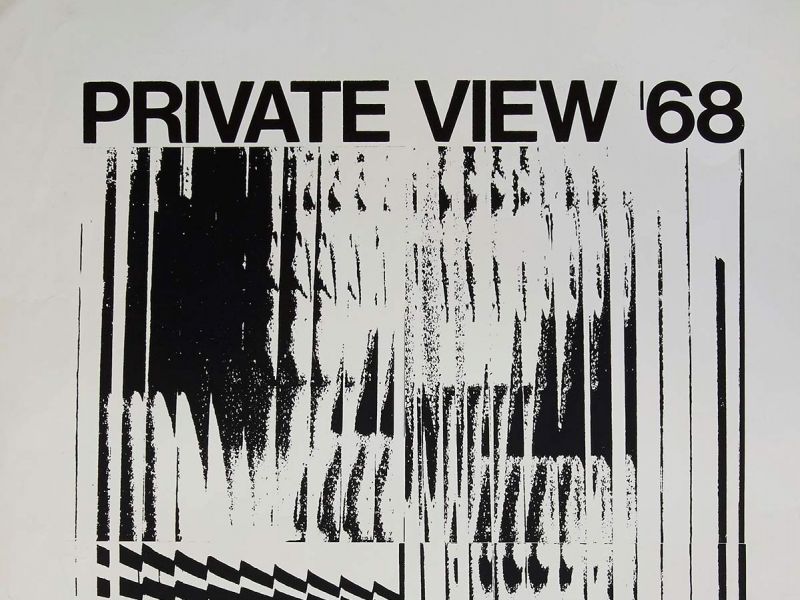
1968, Private View, poster
In 1968 the Private View series of student exhibitions was selected by Alexander Dunbar, the founder and then director of Northern Arts, one of the first regional art associations. The poster is one of the first for student exhibitions to utilise photography as part of the design.
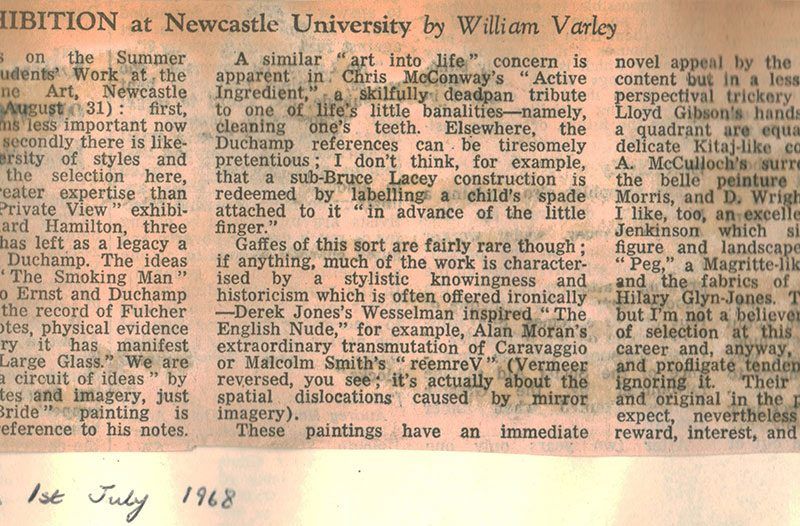
1968, William Varley, press review
In his review for the Guardian William Varley identifies an increasing diversity in the work of the students, though also a lingering influence from Richard Hamilton through an evident interest in Marcel Duchamp. He concludes that the exhibition is ‘derivative and original in the proportions one might expect…’.
Acquisitions
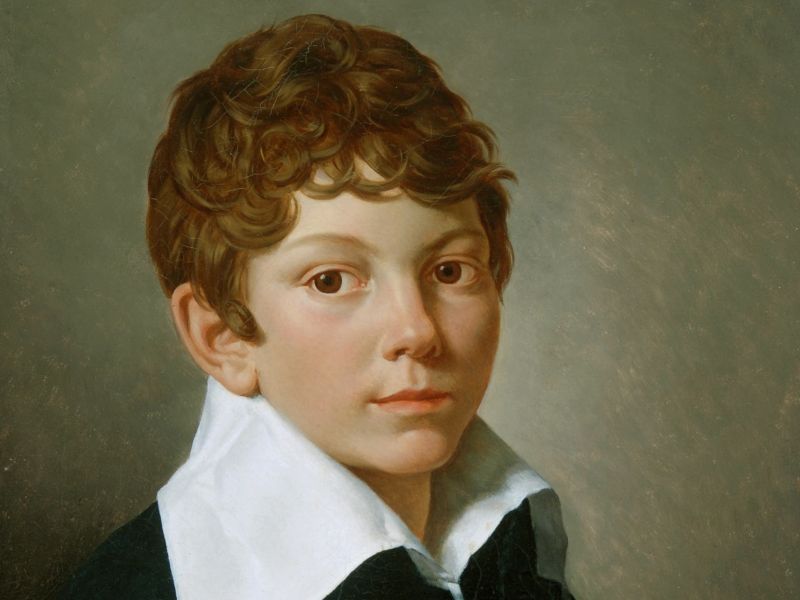
Portrait of a Boy, 1823
Louis Léopold Boilly
Attributed to Louis Léopold Boilly (1761–1845) - 'Portrait of a Boy' 1823.
NEWHG : OP.0043. Oil on canvas purchased from Sotheby's, 1968.
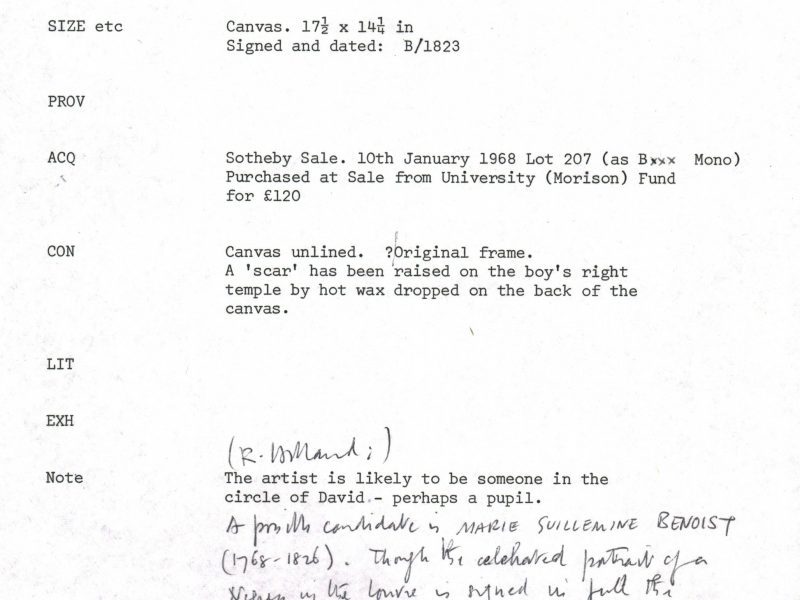
1970s record sheet for ‘Portrait of a Boy’
Ralph Holland
This record card, probably from the early 1970s, confirms that when purchased at Sotheby’s it was catalogued merely as by ‘Monogrammist B’, Ralph Holland seems to have favoured Benoist as an attribution, where Boilly came from is not recorded.
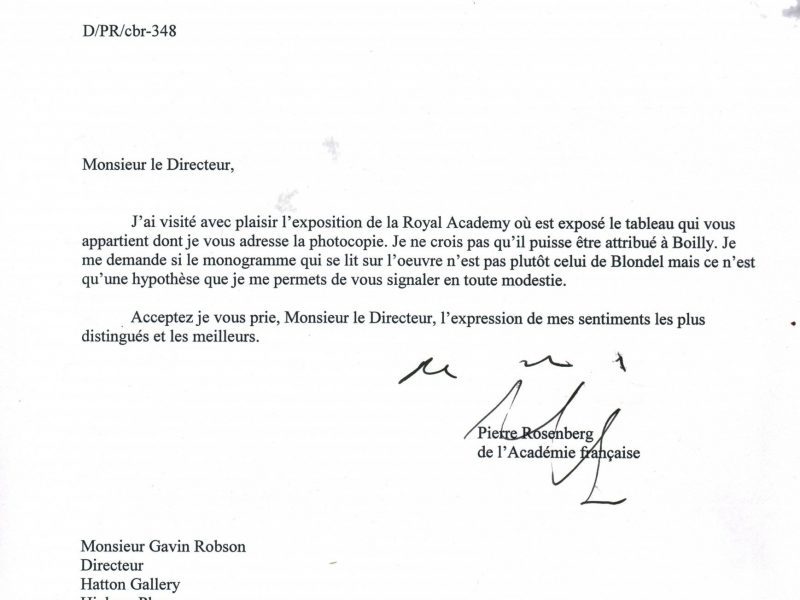
Letter from Pierre Rosenberg, 1998
In 1998 the portrait was included in the exhibition ‘The Art Treasures of England: the regional collections’ at the Royal Academy, seeing the painting there led Pierre Rosenberg, the then ‘President-director’ of the Musée du Louvre to write, suggesting yet another possible attribution: “I do not believe it can be attributed to Boilly. I wonder if the monogram which appears on the artwork is not rather that of Blondel, but this is only a hypothesis that I would like to point out in all modesty.”
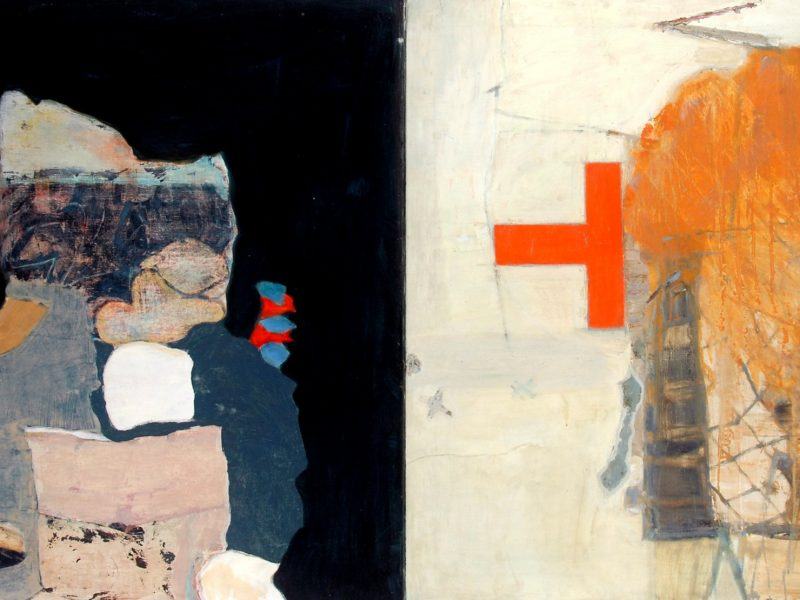
The District Line, 1964
Prunella Clough
Prunella Clough (1919-99) - 'The District Line' 1964.
NEWHG : OP.0100. Oil on canvas presented by the Contemporary Art Society, 1968.
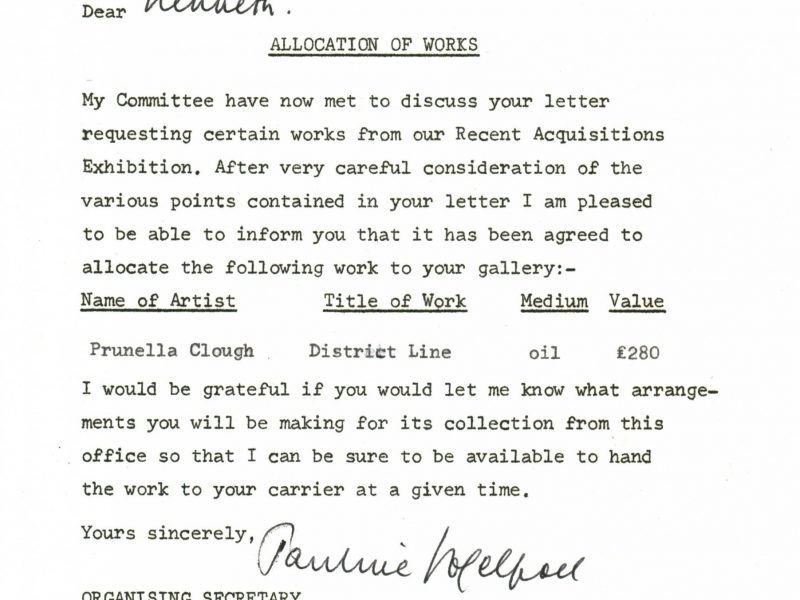
Letter from the Contemporary Art Society, 1968
Kenneth Rowntree
Rowntree, like Gowing before him, was able to secure a significant group of British 20th century artists for the Collection through the Contemporary Art Society. Under Rowntree they were, like Clough, increasingly ‘contemporary’.
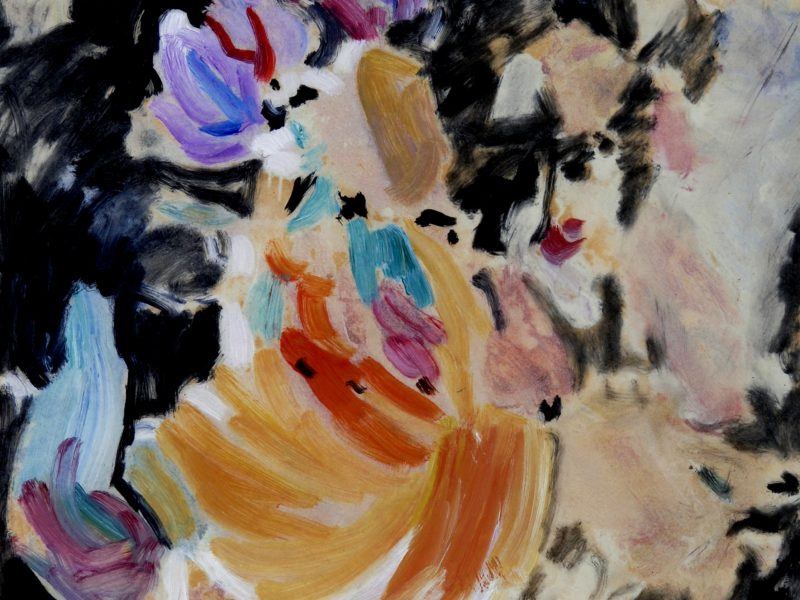
Study for a Painting, 1920
David Bomberg
David Bomberg (1890-1957) - 'Study for a Painting (Imaginative Composition)’ c.1920.
NEWHG : OP.0119. Oil on paper purchased from Sotheby's, 1968.
This painting is from an unusual group of about 50 transitionary works, which Bomberg referred to as ‘Imaginative Compositions’, made around 1920, between his fragmented ‘Vorticist’ works and more painterly landscapes and portraits.
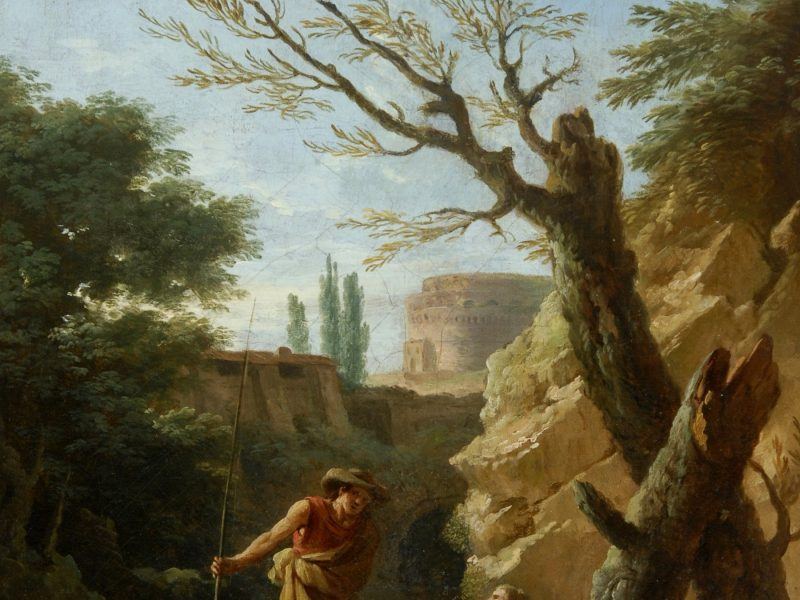
Figures in a Landscape, 1750
Claude-Joseph Vernet
Claude-Joseph Vernet (1714-1789) - 'Figures in a Landscape' c.1750.
NEWHG : OP.0040. Oil on canvas purchased from P&D Colnaghi, 1968.
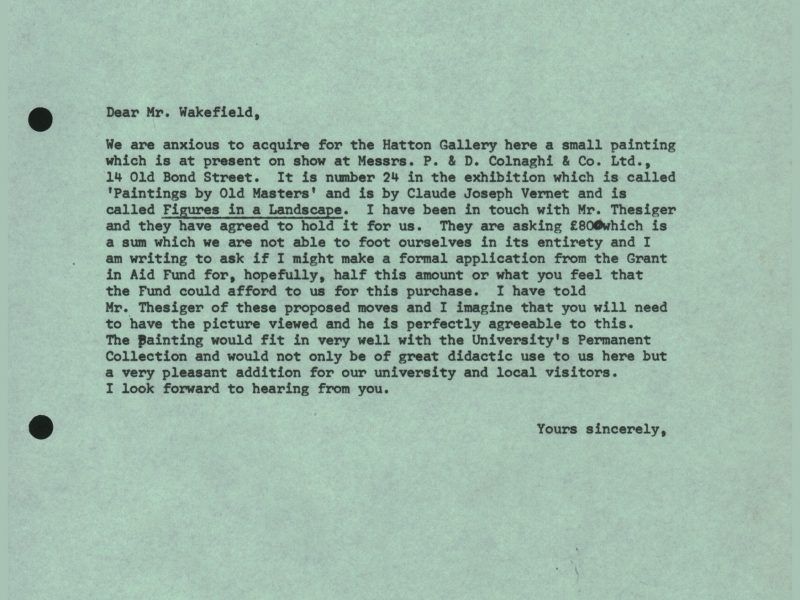
Letter to the V&A Museum, 1968
Kenneth Rowntree
P&D Colnaghi, and particularly Roderic Thesiger, remained under Rowntree, as with Gowing, the main source of old master works for the Collection. With prices increasing and the funds available dwindling, Rowntree again had to apply to the V&A Purchase Grant Fund to raise sufficient money to complete the acquisition.
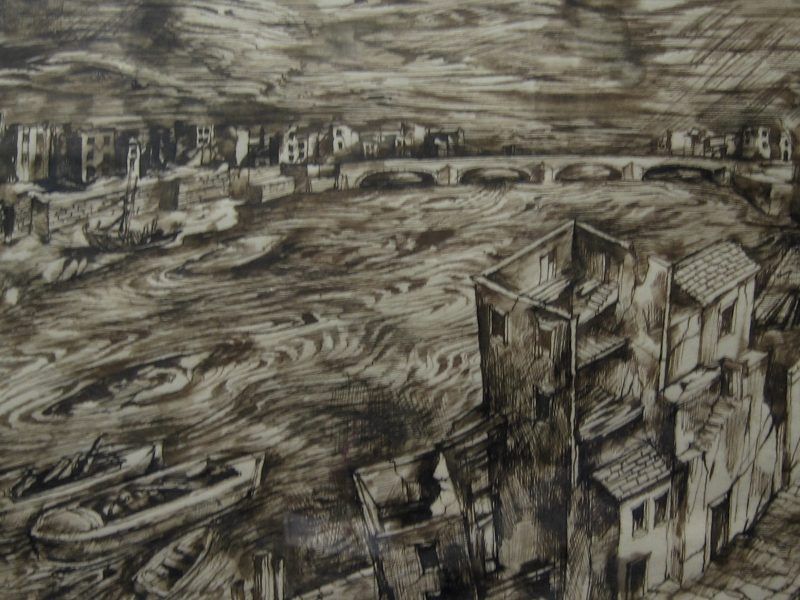
The Thames, 1941
John Minton
John Minton (1917-57) – ‘The Thames’ 1941.
NEWHG : D.0002. Ink on paper. Presented by Judge Lyall Wilkes, 1968.
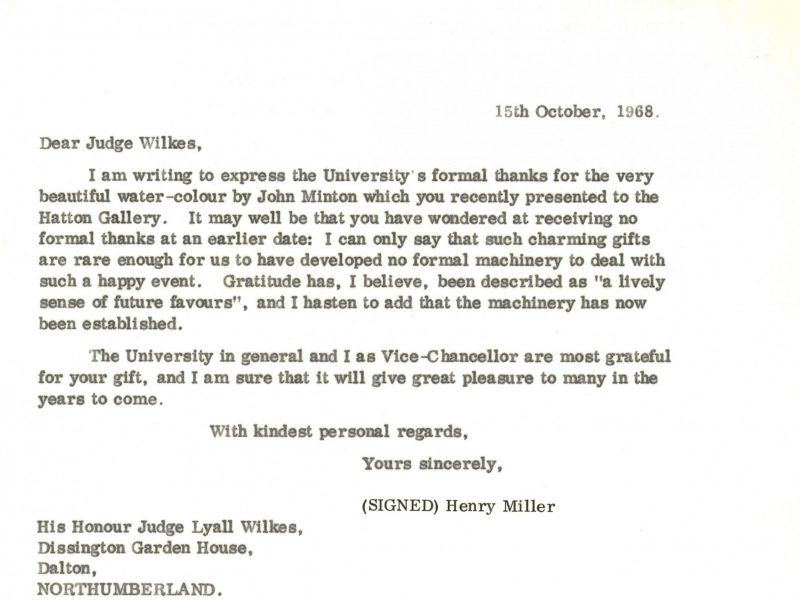
A letter to Judge Lyall Wilkes, 1968
Henry Miller
By the end of the 1960s occasional gifts would become the main source of additions to the Permanent Collection, here the new University Vice-Chancellor, Henry Miller writes expressing his thanks to Judge Lyall Wilkes (1914-1991), an English historian, circuit judge and Labour Party politician, for the gift of the Minton work on paper.
